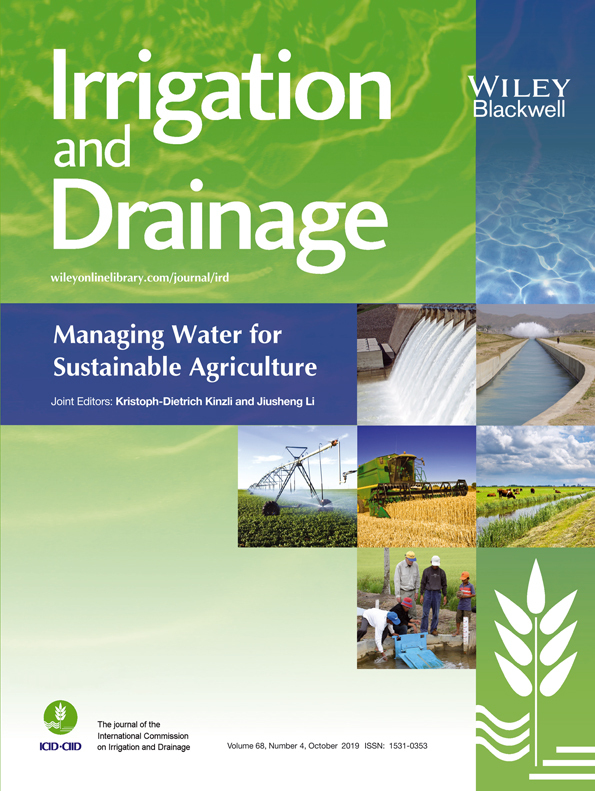Optimization of Canal Water in an Irrigation Network Based on a Genetic Algorithm: A Case Study of the North China Plain Canal System†
Abstract
enMaximizing the efficiency of water distribution in canals requires clear guidelines and criteria for system design and operation. Studies have shown that optimization models based on a genetic algorithm (GA) provide a reasonable arrangement of canal water allocation times and discharges, which reduces water transportation losses. In this study, a GA was developed and implemented in the North China Plain canal system, which has 24 minor canals and a command area of approximately 1800 ha. The optimization results indicated that the total seepage loss and evapotranspiration in the canal system decreased from 249 000 to 115 000 m3. Furthermore, the total water requirement decreased from 1 170 000 to 1 040 000 m3. This study suggests that revising water delivery schedules could increase water productivity, and reduce water leakage and total water requirements. © 2019 John Wiley & Sons, Ltd.
Résumé
frMaximiser l'efficacité de la distribution de l'eau dans les canaux nécessite des directives et des critères clairs pour la conception et le fonctionnement du système. Des études ont montré que les modèles d'optimisation basés sur un algorithme génétique (GA) fournissent un agencement raisonnable des temps d'attribution de l'eau des canaux et des débits, ce qui réduit les pertes de transport de l'eau. Dans cette étude, une GA a été développée et mise en œuvre dans le système de canaux de la plaine de la Chine du Nord, qui compte 24 canaux mineurs et une zone de contrôle d'environ 1800 ha. Les résultats de l'optimisation ont indiqué que la perte totale d'infiltration et l'évapotranspiration dans le système de canaux ont diminué de 249 000 à 115 000 m3. En outre, les besoins en eau totaux ont diminué de 1 170 000 à 1 040 000 m3. Cette étude suggère que la révision des calendriers d'approvisionnement en eau pourrait augmenter la productivité de l'eau et réduire les fuites d'eau et les besoins en eau totaux. © 2019 John Wiley & Sons, Ltd.




